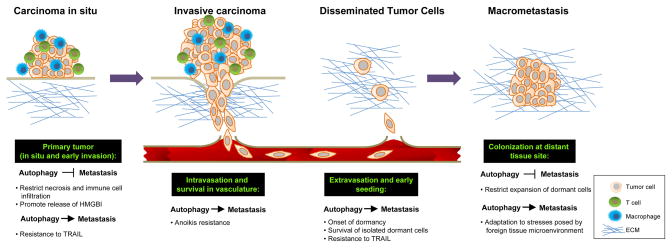Figure 1. Potential roles of autophagy during metastasis.
Metastatic progression involves a series of established steps (black boxes with green text) during which autophagy may promote or inhibit metastasis. Primary tumor: Autophagy may inhibit metastasis by restricting necrosis and the consequent infiltration of pro-metastatic inflammatory cells or by directly promoting the release of anti-metastatic immunomodulatory factors such as HMBG1. Alternatively, it may promote metastasis by allow tumor cells to resist TRAIL-induced apoptosis. Intravasation and survival in systemic circulation: As tumor cells disseminate and enter the systemic vasculature, autophagy may protect cells from anoikis, and thus serve a pro-metastatic function. Extravasation and early seeding: Disseminated tumor cells (DTCs) often enter a period of dormancy, or quiescence, as they cope with exposure to hostile microenvironments at distant sites. Autophagy may favor survival of quiescent tumor cells during dormancy. Colonization at distant tissue site: Autophagy may restrict the development of DTCs into larger macrometastases by maintaining dormancy for extended periods of time; alternatively, it may also promote macrometastases by allowing the tumor cells to overcome the stresses of tumor growth in a foreign microenvironment.

